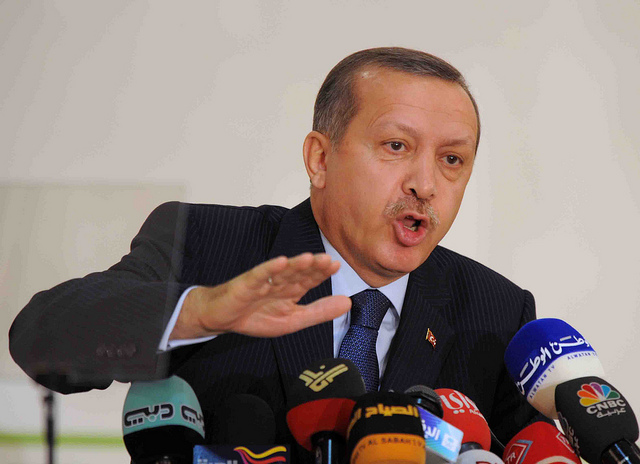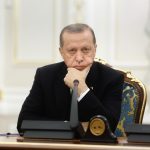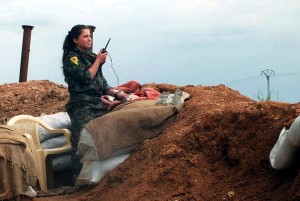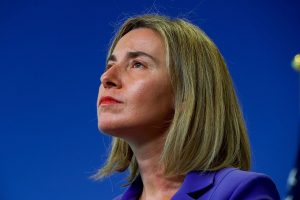by Derek Davison
On November 1, Turks will head back to the polls to redo their country’s inconclusive June elections. That vote stripped Turkey’s ruling Justice and Development Party (AKP) of the parliamentary majority it had held since 2002 (the first election in which it stood) and led to months of negotiations over forming a coalition government. Those talks went nowhere for a variety of reasons, including Turkey’s checkered history with coalition governments. There was also the insistence by all of AKP’s potential coalition partners on a resumption of investigations into allegations of AKP corruption that risked embarrassing Turkish President (and AKP leader) Recep Tayyip Erdogan. So with a coalition off the table, these snap elections are supposed to restore political order, presumably by returning AKP to a majority.
Unfortunately for Erdogan, there’s no guarantee that’s going to happen, and the reason can be found in AKP’s own electoral history. One of AKP’s biggest successes was that it managed to win the votes of a sizable number of religiously conservative Kurds who had either backed Kurdish parties or simply refused to vote before AKP came on the scene. AKP offered a religious message that appealed to these voters, and Erdogan was also a supporter of negotiations between Ankara and the Kurds, specifically the Kurdistan Workers’ Party (PKK), with an eye toward ending the PKK’s uprising against the Turkish state (which began in the 1980s). By 2013, a peace deal seemed to be within reach.
Then Erdogan got nervous about growing Kurdish autonomy in northern Syria and started actively pursuing ways to stifle it, including (allegedly) providing at least tacit aid to the Islamic State (ISIS or IS). This apparently cost AKP heavily among those conservative Kurds, whose votes migrated over to the mostly Kurdish People’s Democratic Party (HDP). HDP’s success in getting over the 10% minimum threshold to be seated in parliament was the single biggest factor in costing AKP its majority in June. Prior to the June vote, most of the talk about HDP’s chances focused on its plan to cast itself as a broad leftist party rather than as a narrow Kurdish one. But post-election analysis shows pretty clearly that HDP’s biggest gains came from those conservative Kurds, which meant that it came at AKP’s direct expense.
If Erdogan’s goal was to restore AKP’s majority, one obvious way would have been for him to change course with respect to the Kurds in Syria to try to win back those conservative Kurdish votes. He chose another path. Beginning in late July, Turkey declared that it was joining the fight against IS, while in reality it has been directing the vast majority of its military attention at the PKK. This renewed fighting has completely undone whatever was left of the Turkey-PKK peace process, and it certainly hasn’t won any Kurdish voters back to AKP’s side.
Erdogan’s plan seems to be that, by increasing the violence with PKK, AKP can put together a new majority by peeling voters away from the right-wing, anti-Kurdish Nationalist Movement Party (MHP), which came in third place in June’s vote. But polls leading up to the snap elections are suggesting that, far from building a new path to a majority, AKP has actually lost support since June:
Support for Turkey’s ruling AK Party has slipped by 1.6 points from June’s election to 39.3 percent, a survey from pollster Gezici showed on Monday, casting doubt on the AKP’s chances of forming a single-party government after a Nov.1 vote.
The centre-right, Islamist-rooted AKP founded by President Tayyip Erdogan lost its single-party majority in June for the first time since coming to power in 2002, taking 40.9 percent of the vote.
Each of the other three major parties (HDP, MHP, and the main opposition Republican People’s Party) has gained support since June, according to the Gezici poll. But the crucial finding is that, if the November 1 election follows those results, Turkey’s political situation would remain unchanged. AKP would have a plurality in parliament but would have to form a coalition with another party in order to govern. What happens if the whole cycle repeats itself and the parties again fail to form a coalition? One major concern is that, in a third bite at the electoral apple, Erdogan might do something drastic to put his finger on the scales:
Since then, he has based his strategy on the assumption that this flare-up in violence would rally nationalist and conservative votes to AKP. He has beefed up this strategy by portraying HDP and Demirta? as PKK allies, and hence perpetrators of the current instability. Nevertheless, polls suggest that the AKP may not secure a solid majority in parliament—that would leave the country without a strong government that could end the cycle of violence. Some analysts predict that the power-hungry Erdogan may also seek a “re-run” of the “re-run” elections; this time around, he may even invoke the violence in some parts of the Kurdish-populated areas as an excuse not to place ballot boxes, which are otherwise very likely to contain votes cast in favor of HDP.
Taking a step like that would probably put AKP back in the majority. But it would invalidate the legitimacy of any election results and might be the final blow to any near-term hope for Turkish-Kurdish reconciliation. A full-scale civil war between Ankara and the Kurds would compound the crisis in Syria exponentially, and it could create a massive quandary for the United States. What happens if Turkey invokes Article 5 of the NATO treaty, requiring other NATO members to come to its defense, in response to violence by the Kurds, who have been Washington’s most reliable (maybe its only reliable) ally against IS in Syria? That question may not be so simple for America to answer, particularly if it’s Ankara, rather than the Kurds, that is seen as the aggressor.






The best solution would be that Erdogangster and Hamster Davutoglu resign under protests in view of the prospect of endless re-runs and of more violence developing after each one.
The only person that can still save Turkey is Gul.